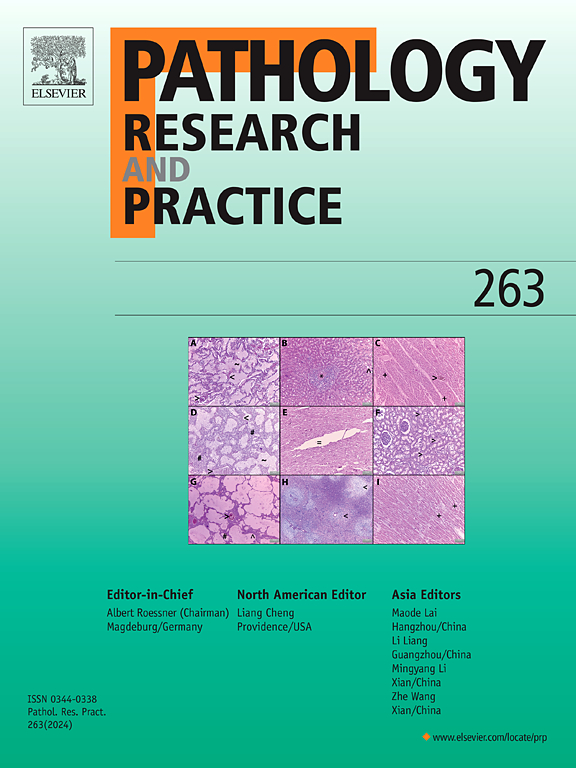CRC Management: Emerging Trends in Early Detection, Diagnosis, Biomarkers, Treatment, and Prevention
IF 3.2
4区 医学
Q2 PATHOLOGY
引用次数: 0
Abstract
Colorectal cancer (CRC) is a significant global health concern, including in Saudi Arabia, where its incidence has increased in recent years. It contributes substantially to cancer-related morbidity and mortality, both regionally and worldwide. Recent advancements in genetic and epigenomic data, along with the use of biomarkers, have enhanced the potential for early diagnosis, effective treatment, and monitoring of CRC. Biomarkers are essential for precise medicine because they provide quantitative evidence of disease attributes and facilitate the formulation of treatment plans. By leveraging artificial intelligence (AI) and big data, advanced biomarker analysis has become more effective, further expanding the capabilities of precision medicine. However, the effects of novel biomarkers on mortality and treatment effectiveness remain inconclusive, largely because of insufficient data from large-scale clinical studies. The use of precision medicine in clinical practice presents several challenges, including regulatory hurdles, high implementation costs, and the complexity of integrating large-scale genomic data into routine health care systems. Considering these challenges, the use of biomarkers in precision medicine has demonstrated encouraging findings, enabling specific therapy and improving patient outcomes.

结直肠癌管理:早期发现、诊断、生物标志物、治疗和预防的新趋势
结直肠癌(CRC)是一个重大的全球健康问题,包括在沙特阿拉伯,其发病率近年来有所增加。它在很大程度上导致了区域和世界范围内与癌症相关的发病率和死亡率。遗传和表观基因组数据的最新进展,以及生物标志物的使用,增强了早期诊断、有效治疗和监测结直肠癌的潜力。生物标志物对精准医学至关重要,因为它们提供了疾病属性的定量证据,并有助于制定治疗计划。通过利用人工智能(AI)和大数据,先进的生物标志物分析变得更加有效,进一步扩大了精准医疗的能力。然而,新型生物标志物对死亡率和治疗效果的影响仍然不确定,主要是因为大规模临床研究数据不足。在临床实践中使用精准医学面临着一些挑战,包括监管障碍、高实施成本以及将大规模基因组数据整合到常规卫生保健系统中的复杂性。考虑到这些挑战,在精准医学中使用生物标志物已经显示出令人鼓舞的发现,实现了特异性治疗并改善了患者的预后。
本文章由计算机程序翻译,如有差异,请以英文原文为准。
求助全文
约1分钟内获得全文
求助全文
来源期刊
CiteScore
5.00
自引率
3.60%
发文量
405
审稿时长
24 days
期刊介绍:
Pathology, Research and Practice provides accessible coverage of the most recent developments across the entire field of pathology: Reviews focus on recent progress in pathology, while Comments look at interesting current problems and at hypotheses for future developments in pathology. Original Papers present novel findings on all aspects of general, anatomic and molecular pathology. Rapid Communications inform readers on preliminary findings that may be relevant for further studies and need to be communicated quickly. Teaching Cases look at new aspects or special diagnostic problems of diseases and at case reports relevant for the pathologist''s practice.

 求助内容:
求助内容: 应助结果提醒方式:
应助结果提醒方式:


